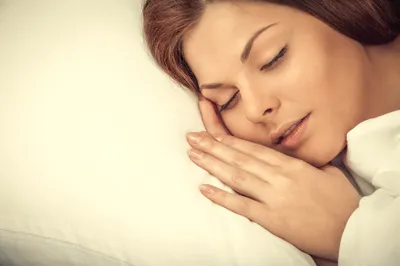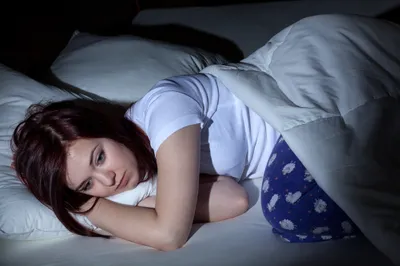You’re already aware how sleep, or lack of it, impacts your mental and physical health. Sleep, after all, affects our ability to exercise and our inclinations when it comes to appetite and food. This means skipping out on essential shut-eye can be greatly detrimental to your ability to be active, think, focus, and make healthy decisions.
Luckily, sleep studies during the past decade tell us how to get more quality sleep in order to live healthier, happier, longer lives…
1. Sleep Vital to Health
If you fear any of the following chronic illnesses—depression, obesity, cardiovascular disease, stroke, anxiety, or high blood pressure—adequate shut-eye should be on the top of your priority list.
In fact, sleep is considered of such vital importance that researchers at Harvard Medical School’s Division of Sleep Medicine have deemed sleep is the “third pillar of health,” in addition to healthy nutrition and exercise. Skimping on sleep is linked to contributing to several chronic diseases—from type II diabetes to an increased risk of breast cancer.

2. Smartphone Ban in the Bedroom
Do you wonder why your child is always tired even though they go to bed at a decent time? If they take their smartphone to bed with them, technology might be cutting into their quality sleep time.
According to a 2015 study conducted by researchers at the University of California’s, School of Public Health, at Berkeley, elementary and middle school kids with a smartphone or tablet in the bedroom suffer a significant loss of weeknight sleep and tend to be sleepier in the daytime. This is linked to lighting emitted by tech devices, which disrupts sleep-wake cycles and melatonin production. Tech devices also emit audible sounds that interrupt sleep.

3. Shift Work Risks Wellbeing
If you’re among the millions of American commercial drivers, pilots, nurse, doctors, police officers, firefighters, paramedics, factory workers, or over-night customer service employees you’re putting yourself at risk of a medical condition known as Shift Work Sleep Disorder.
The National Sleep Foundation claims that Shift Work Sleep Disorder impacts roughly 20-percent of those who works outside of the typical 9am to 5pm business day. The trouble is that shift workers are considered “high risk” for several chronic illnesses—including depression, gastrointestinal diseases, diabetes, cardiovascular disease, and obesity.

4. Sleep is Vital for Mental Detox
Just because you’re snoozing doesn’t mean your brain is taking a break. In fact, a research study out of the University of Rochester tells us that while we sleep, the brain uses this time to get a fair amount of housekeeping done.
The study, published by the National Institutes of Health, notes that during sleep, the brain remains highly active—using this physical resting time to process and consolidate memories, absorb complex information, and to purge toxins that can lead to neurodegeneration.

5. Sleep and Circadian Rhythms
Did you know that every human (and animal) has an innate, biological clock (or circadian rhythms) that controls our sleeping and waking cycles? A study conducted by neuroscientists at Vanderbilt University, in Nashville, Texas, found that sleep can both positively and negatively impact our circadian patterns of sleeping and waking.
Scientists point to the fact that unbalanced circadian rhythms are common in those suffering from jet lag, shift work sleep disorder, and seasonal affective disorder (SAD). However, in a study of mice, researchers were able to trigger the brain region that controls circadian patterns to alter sleep and wake cycles in a positive manner. This research could help develop treatments for these disorders.

6. Early Bird Gets the Worm
While worms may not motivate you rise and shine any earlier in the day—a Toronto graduate study attests that early morning risers are healthier, happier, and more focused than their night owl counterparts.
The researchers asked a group of roughly 800 participants to answer a questions based about their emotional state, healthfulness, and favorite time of day. Findings showed that morning types show significantly greater levels of happiness, motivation, and overall sense of well being compared to night owls. The research also suggested that morning people tend to have slimmer waistlines.
